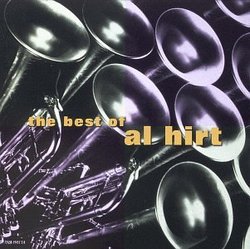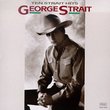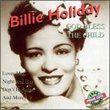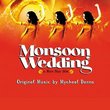| All Artists: Al Hirt Title: Best of Members Wishing: 0 Total Copies: 0 Label: EMI Special Products Release Date: 4/10/1998 Genres: Jazz, Pop Styles: Traditional Jazz & Ragtime, Dixieland Number of Discs: 1 SwapaCD Credits: 1 UPC: 724381945728 |
Search - Al Hirt :: Best of
CD DetailsSimilar CDs
Similarly Requested CDs
|
CD ReviewsFour Seasons in Forty-Six Minutes SarahL | Michigan | 11/07/2005 (5 out of 5 stars) "The album, The Best of Al Hirt, featuring the Grammy award-winning trumpet player, Al Hirt, includes some of his best work chosen from the more than fifty albums he recorded in his career. This album combines genres of blues, jazz, and pop to keep the listener tapping his foot, not to mention keep him mesmerized by Hirt's amazing talent and ability. The listener can close his eyes and be transported to another day and time. The songs on The Best of Al Hirt seem to walk one through the sights, sounds, and feelings of an entire year.
The second song, "Sweet Georgia Brown," sounds like an exciting, summer storm. The song begins with a powerful trumpet that seem to be warning winds of a great storm. As the trumpet plays forte to piano, the winds blow stronger to more calm. After the trumpet introduction, the clarinet and saxophone join in as heavy rain, adding to the storm's velocity. After an interlude of just heavy rain, the trumpet comes back to life, blowing like strong wind. The trombone interrupts with explosions of thunder. Relaxing echoes of the piano take place of the noisy storm; its notes sound like calm, sprinkling rain and signal the end of the monstrous storm. Without warning however, symbols crash and drums sound to illustrate the return of thunder and lightning. Immediately following are all of the elements of the exciting storm combined; the trumpet, saxophone, clarinet, drums, and trombone create the sounds of a summer storm that has not yet ended. The third track, "New Orleans," sounds like a cloudy, winter day. The song is obviously blues from the beginning. The trumpet plays, calmly, moving down the music scale constantly as if the notes were flakes of snow falling slowly from the sky. The snow continues to fall until the tempo begins to move more quickly. The trumpet turns into more of a jazz sound, and drums are added to the arrangement. It is as if the sun has peeked from behind the clouds, giving hope and holding promise that the day will not be so cold and depressing. Unfortunately, the clouds move to conceal the sun, and it is back to the blues. By the end, the trumpet seems to be pleading for the sun to come back out as it screams to a much higher register than the rest of the song. The seventh song, "Stardust," sounds like a clear, spring morning. The mood is calm, quiet, and extremely laid back. The trumpet is not blasting but slow and melodious. The morning seems to be warming up as the sound of the trumpet seems to wake up and speed up slightly. Spring's sense of hope is evident through the key in which the song is in, and the clarinets sing as if they are tired birds returning home from the south. The trumpet playfully sings alone with energy, illustrating the plants growing and turning green. By the end of the song, spring has seemed to arrive. The final song, "Java," sounds like a cool, fall afternoon. The upbeat tempo from the beginning suggests a comfortable day with the sun shining. The trumpet and saxophone take turns; colorful leaves fall to the ground and are crunched underneath feet. The cycle continues until gusts of wind come, blowing the trumpet's notes up and down the music scale. The crunched leaves are blown all over the place. The trumpet ends the song playfully, suggesting children diving into a pile of leaves with the last, strongly-accented note. Mixed in with the rest of the incredible pieces on the album, The Best of Al Hirt, are these four songs that illustrate the seasons of a year. Memories of spring, summer, fall, and winter are bound to come back to the listener. " |


 Track Listings (10) - Disc #1
Track Listings (10) - Disc #1








